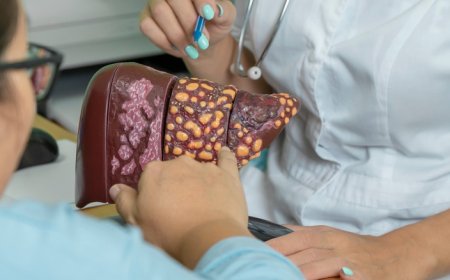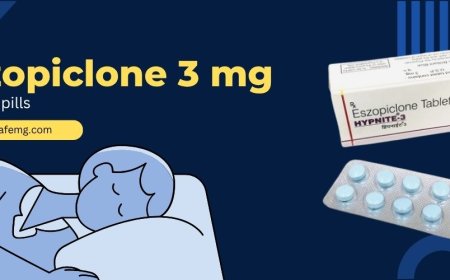Middle-Aged Adults and Neck Muscle Pain
Understanding neck muscle pain in middle-aged adults: causes like arthritis, stress, and poor posture. Find targeted treatments and prevention.

Neck muscle pain becomes increasingly common as we enter our middle years, typically affecting adults between 40 and 60 years old. This age group faces unique challenges that contribute to neck discomfort, including hormonal changes, decades of accumulated stress, workplace demands, and the natural aging process affecting muscle and joint health.
Middle-aged adults often experience neck muscle pain differently than younger individuals. The pain may be more persistent, take longer to heal, and have complex underlying causes. Understanding these age-specific factors is crucial for effective treatment, prevation and medicines like tapentadol 100 mg
This comprehensive guide explores the causes, symptoms, and treatment options specifically tailored for middle-aged adults dealing with neck muscle pain, including both conservative approaches and medical interventions when necessary.
Understanding Neck Muscle Pain in Middle Age
The Aging Process and Neck Health
As we age, several physiological changes occur that make neck muscle pain more likely:
Muscle Mass Decline: After age 30, adults lose approximately 3-8% of muscle mass per decade. This loss accelerates after 40, particularly affecting the smaller stabilizing muscles in the neck.
Reduced Flexibility: Connective tissues become less elastic over time, leading to decreased range of motion and increased susceptibility to strain.
Bone Density Changes: Age-related bone density loss can affect the cervical spine, potentially leading to structural changes that impact surrounding muscles.
Hormonal Influences: Hormonal changes, particularly during perimenopause and menopause, can affect muscle recovery and pain perception.
Common Causes in Middle-Aged Adults
Occupational Factors: Decades of desk work, repetitive motions, or physical labor take their toll on neck muscles. Poor ergonomics compound these effects over time.
Stress Accumulation: Middle-aged adults often face peak stress levels from career demands, family responsibilities, and financial pressures. Chronic stress leads to muscle tension, particularly in the neck and shoulders.
Sleep Changes: Sleep quality often declines with age, and poor sleep positions or inadequate rest can contribute to neck muscle pain.
Degenerative Changes: Early signs of cervical spondylosis (arthritis of the neck) may begin appearing, affecting muscle function and comfort.
Technology Use: Increased smartphone and computer use contributes to "tech neck," a condition particularly problematic for middle-aged adults who may not have grown up with these devices.
Symptoms and Warning Signs
Typical Symptoms
Middle-aged adults with neck muscle pain commonly experience:
- Persistent aching or stiffness in the neck region
- Reduced range of motion when turning or tilting the head
- Muscle spasms or knots in the neck and shoulder area
- Headaches that originate from the neck
- Pain that radiates to the shoulders or upper back
- Increased pain after prolonged sitting or sleeping
- Morning stiffness that may last longer than in younger adults
When to Seek Medical Attention
Certain symptoms require immediate medical evaluation:
- Severe pain following an injury
- Numbness or tingling in the arms or hands
- Weakness in the arms or hands
- Fever accompanying neck pain
- Severe headache with neck stiffness
- Pain that doesn't improve with rest and basic care after a few days
Treatment Options
Conservative Approaches
Physical Therapy: Age-appropriate exercises focusing on strengthening, flexibility, and posture correction are particularly beneficial for middle-aged adults.
Heat and Cold Therapy: Alternating between heat (for muscle relaxation) and cold (for inflammation) can provide significant relief.
Massage Therapy: Professional massage can help release muscle tension and improve circulation, which may be slower in middle-aged adults.
Ergonomic Modifications: Workplace and home environment adjustments become crucial for preventing ongoing strain.
Stress Management: Techniques such as meditation, yoga, and counseling can address the stress component of neck muscle pain.
Medical Interventions
For moderate to severe neck muscle pain that doesn't respond to conservative treatments, medical interventions may be necessary.
Prescription Pain Management: In cases where over-the-counter medications are insufficient, healthcare providers may prescribe stronger pain relief options. Tapentadol 100mg is one such medication that may be considered for managing moderate to severe neck muscle pain in middle-aged adults.
Tapentadol works through a dual mechanism of action, providing both opioid-like pain relief and norepinephrine reuptake inhibition. This makes it potentially effective for musculoskeletal pain conditions like neck muscle pain. However, it should only be used under strict medical supervision due to its potential for dependence and side effects.
Other Medical Options:
- Muscle relaxants for severe muscle spasms
- Anti-inflammatory medications
- Trigger point injections
- Nerve blocks for specific conditions
Alternative Therapies
Acupuncture: Many middle-aged adults find relief through acupuncture, which may be particularly effective for chronic neck pain.
Chiropractic Care: Gentle manipulative treatments can help improve neck mobility and reduce pain.
Yoga and Tai Chi: These practices combine gentle movement, stretching, and stress reduction.
Prevention Strategies
Workplace Wellness
- Adjust computer monitors to eye level
- Use ergonomic keyboards and mice
- Take regular breaks to stretch and move
- Consider a standing desk or ergonomic chair
- Maintain proper posture throughout the workday
Home Environment
- Choose supportive pillows and mattresses
- Create a comfortable reading and TV-watching setup
- Avoid prolonged periods in one position
- Use proper lighting to prevent neck strain
Lifestyle Modifications
- Regular exercise program including strength training
- Stress management techniques
- Adequate sleep (7-9 hours nightly)
- Proper nutrition to support muscle health
- Stay hydrated throughout the day
Exercise and Stretching Program
Daily Stretches
Neck Rotation: Slowly turn your head left and right, holding for 10 seconds each direction.
Shoulder Blade Squeezes: Pull shoulder blades together, hold for 5 seconds, repeat 10 times.
Upper Trap Stretch: Gently pull your head to one side while keeping the opposite shoulder down.
Chin Tucks: Pull your chin back toward your neck, creating a "double chin" effect.
Strengthening Exercises
Resistance Band Exercises: Use light resistance bands to strengthen neck muscles in all directions.
Isometric Exercises: Apply gentle pressure with your hand while resisting with your neck muscles.
Core Strengthening: A strong core supports proper posture and reduces neck strain.
Precautions and Safety Considerations
General Safety
- Never ignore persistent or worsening pain
- Avoid sudden, jerky movements when exercising
- Start any new exercise program gradually
- Stop activities that significantly increase pain
- Maintain proper form during all exercises
Medication Safety
If prescribed medication like Tapentadol 100mg for neck muscle pain management:
Important Safety Guidelines:
- Take only as prescribed by your healthcare provider
- Never exceed the recommended dosage
- Avoid alcohol while taking this medication
- Be aware of potential side effects including dizziness, nausea, and drowsiness
- Do not drive or operate machinery if you feel impaired
- Store medication securely away from children and pets
- Never share prescription medications with others
- Follow up regularly with your healthcare provider
Potential Side Effects: Common side effects may include nausea, dizziness, constipation, and drowsiness. More serious side effects require immediate medical attention.
Drug Interactions: Inform your healthcare provider about all medications, supplements, and herbal remedies you're taking.
Age-Specific Considerations
- Middle-aged adults may heal more slowly than younger individuals
- Chronic conditions like diabetes or heart disease may affect treatment choices
- Hormonal changes may impact pain perception and treatment effectiveness
- Consider family history of arthritis or other musculoskeletal conditions
When to Consult Healthcare Professionals
Primary Care Physician
Your first step should be consulting with your primary care doctor, who can:
- Assess your overall health status
- Review your medical history
- Perform initial examinations
- Prescribe appropriate medications if needed
- Refer to specialists when necessary
Specialists
Physical Therapist: For exercise programs and manual therapy techniques.
Rheumatologist: If inflammatory conditions are suspected.
Orthopedic Specialist: For structural problems or if surgery is being considered.
Pain Management Specialist: For chronic pain that doesn't respond to standard treatments.
Neurologist: If nerve involvement is suspected.
Frequently Asked Questions
Q: Why is neck muscle pain more common in middle-aged adults?
A: Middle-aged adults face multiple factors that increase neck muscle pain risk, including natural aging processes, accumulated stress from years of work and life responsibilities, hormonal changes, and the cumulative effects of poor posture or repetitive activities.
Q: How long does it typically take for neck muscle pain to heal in middle-aged adults?
A: Healing time varies depending on the severity and underlying cause. Simple muscle strains may resolve in 1-2 weeks with proper care, while chronic conditions may take several months to improve. Middle-aged adults often experience longer recovery times compared to younger individuals.
Q: Are there specific exercises that middle-aged adults should avoid?
A: Avoid high-impact activities, sudden jerky movements, and exercises that cause pain. Heavy weightlifting without proper form can be particularly problematic. Always consult with a healthcare provider before starting new exercise programs.
Q: Can hormonal changes affect neck muscle pain in middle-aged adults?
A: Yes, hormonal changes, particularly during menopause, can affect muscle recovery, pain perception, and inflammation levels. Women may notice changes in their pain patterns during this time.
Q: Is it normal for neck muscle pain to worsen with age?
A: While some age-related changes are normal, persistent or worsening neck pain should be evaluated by a healthcare professional. Many age-related issues can be effectively managed with proper treatment.
Q: How effective is Tapentadol 100mg for neck muscle pain?
A: Tapentadol can be effective for moderate to severe neck muscle pain, but it's not appropriate for everyone. Your healthcare provider will consider your specific condition, medical history, and other factors before prescribing this medication.
Q: Can stress management really help with neck muscle pain?
A: Absolutely. Stress is a major contributor to muscle tension and pain. Stress management techniques like meditation, yoga, and counseling can significantly reduce neck muscle pain, especially when combined with other treatments.
Q: Should I continue working if I have neck muscle pain?
A: This depends on the severity of your pain and your job requirements. You may need to modify your work activities, take more frequent breaks, or adjust your workspace. Discuss accommodations with your employer if needed.
Q: Are there any dietary changes that can help with neck muscle pain?
A: Anti-inflammatory foods like fatty fish, leafy greens, and berries may help reduce inflammation. Staying hydrated and maintaining adequate protein intake supports muscle health. Some people find that reducing caffeine helps with muscle tension.
Q: When should I consider surgery for neck muscle pain?
A: Surgery is typically considered only for severe structural problems that don't respond to conservative treatments. Most neck muscle pain can be managed without surgery. Your healthcare provider will discuss this option only if absolutely necessary.





























